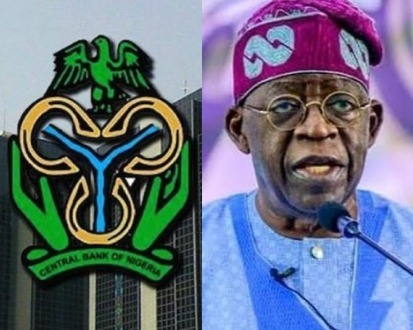President Bola Tinubu has intervened in the implementation of the controversial cybersecurity levy, ordering a suspension and review.
The move comes after the House of Representatives called for a withdrawal of the Central Bank of Nigeria’s directive on the levy, citing ambiguity.
Join our WhatsApp ChannelThe cybersecurity levy, set at 0.5% of electronic transactions, was scheduled to be charged by financial institutions following a circular issued by the CBN on May 6, 2024. The funds collected were meant to be remitted to the National Cybersecurity Fund as per the provisions of the Cybercrime (Prohibition, Prevention, etc) (Amendment) Act 2024.
Financial institutions were directed to initiate the levy on May 20, 2024, with strict instructions to comply or face penalties outlined in the Act. However, concerns arose regarding the clarity of the directive, prompting the House of Representatives to demand its withdrawal and a more understandable replacement.
President Tinubu’s decision reflects sensitivity to the economic challenges faced by Nigerians, especially amidst ongoing reforms. Sources close to the presidency emphasized Tinubu’s reluctance to burden citizens further with additional levies, prompting the call for a review.
“The President is sensitive to what Nigerians feel. And he will not want to proceed with implementing a policy that adds to the burden of the people,” stated a senior presidency official.
READ ALSO: SERAP, BugiT, 136 Nigerians, Sue Nigerian Govt Over Cybersecurity Levy
The decision to suspend the levy garnered mixed reactions from stakeholders. The Peoples Democratic Party welcomed the move, criticizing the initial policy as anti-people and insensitive. Similarly, the Nigeria Labour Congress voiced concerns over the financial strain imposed by the levy and demanded its reversal.
While some experts commended the President’s decision as a step in the right direction, others called for a total cancellation of the policy, citing its potential to exacerbate existing economic challenges.
As the debate over the cybersecurity levy continues, civil society groups like the Socio-Economic Rights and Accountability Project have threatened legal action if the levy is not withdrawn within 48 hours, alleging a violation of constitutional provisions and human rights obligations.
In response to these developments, Vice President Kashim Shettima clarified that the tax reforms initiated by the administration aimed to sustain investment friendliness rather than frustrate Nigerians. Shettima emphasized the need for administrative systems that benefit all citizens, highlighting the government’s commitment to inclusive policymaking.
As President Tinubu’s administration navigates the complexities of taxation and cybersecurity, the focus remains on striking a balance between economic stability and the welfare of Nigerian citizens.
Emmanuel Ochayi is a journalist. He is a graduate of the University of Lagos, School of first choice and the nations pride. Emmanuel is keen on exploring writing angles in different areas, including Business, climate change, politics, Education, and others.

















Follow Us